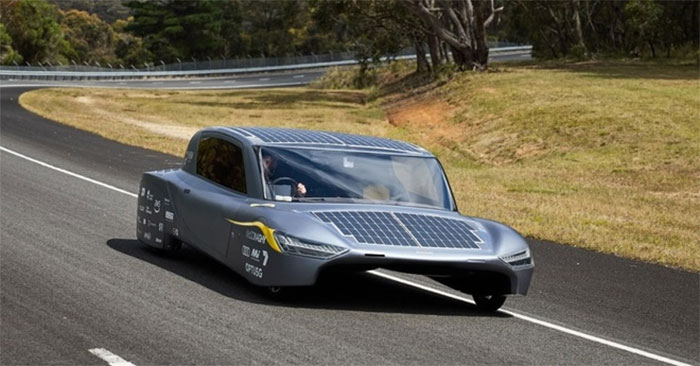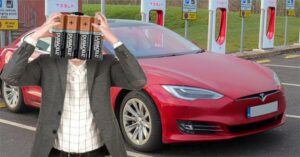
The Sunswift 7 solar car, created by engineers at the University of New South Wales Sydney (UNSW), recently underwent a successful test. It managed to travel a distance of 1,000 km in less than 12 hours on just a single charge, maintaining an impressive average speed of about 85 km/h.

To be more precise, the Sunswift 7 successfully finished a total of 240 laps at the Highway Circuit test track located at the Australian Automotive Research Center.
The construction of solar cars at UNSW began in 1996, and their latest creation is the Sunswift 7.
The Sunswift 7 weighs a mere 500 kg, which is approximately one-fourth of the weight of a Tesla. In order to achieve such a lightweight design, the engineering team made certain modifications, such as removing components like the air conditioning system, ABS brakes, airbags, and windshield wipers. Their primary focus was on enhancing aerodynamic efficiency and reducing rolling friction. As a result, the Sunswift 7 boasts an impressive drag coefficient of just 0.095, significantly lower than the Tesla Model S, which has a drag coefficient of 0.208.
The engineering team dedicated two years to the development of Sunswift 7, aiming to create the swiftest solar electric vehicle capable of covering a distance exceeding 1,000 km on a solitary charge.
Prior to embarking on the 1,000 km challenge, the Sunswift 7 was fully charged. Throughout the test journey, this electric vehicle relied on battery power while also harnessing the energy from its solar cells that span approximately 4.6 square meters across its body. However, the car encountered issues during operation, including battery complications and frequent tire punctures, which compelled the driver to replace them every few hours.

The Sunswift 7 successfully covered a distance of 1,000 km in 11 hours, 53 minutes, and 32 seconds, maintaining an average speed of approximately 85 km/h. The Guinness World Records certificate will be awarded once the vehicle’s timing and telemetry data are officially validated.
Professor Richard Hopkins, who leads the engineering team, mentioned that the Sunswift 7 consumes only 3.8 kWh per 100 km while running. This amount is significantly lower compared to the energy consumption of the most efficient electric cars currently on the road, which is 15 kWh/100 km, and even lower than the average consumption of approximately 20 kWh/100 km.
According to Hopkins, they were willing to give up comfort and incur high costs in order to achieve this record, meaning that the Sunswift 7 is not a model that can be manufactured on a large scale in the future. The engineers’ main goal is to showcase that it is indeed possible to construct cars that are more efficient, sustainable, and environmentally friendly.


